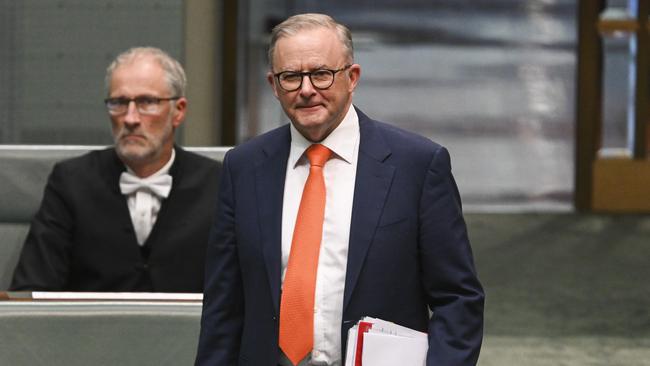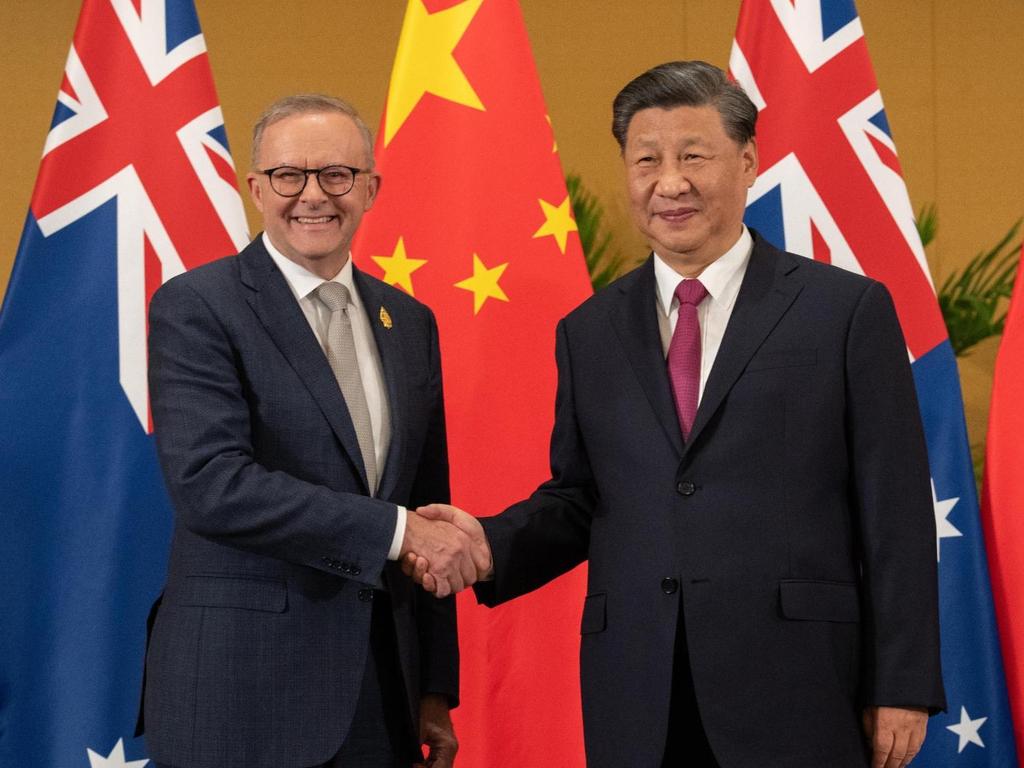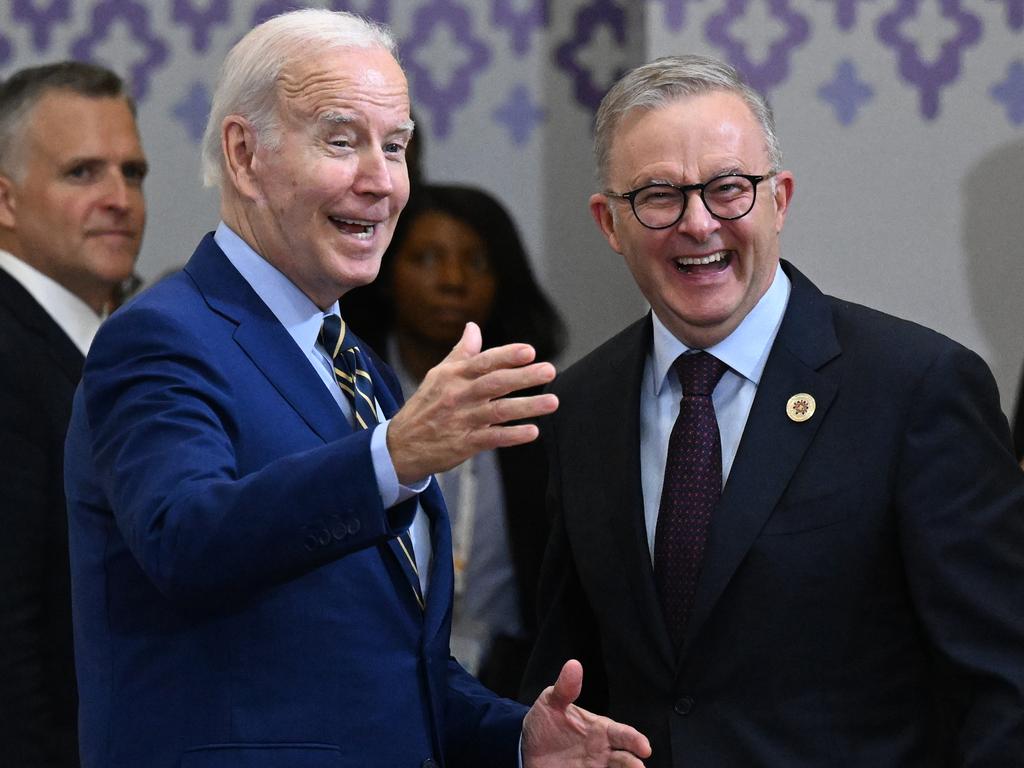Indo-Pacific countries must be ‘active participants’ in maintaining peace, Albanese to warn
Anthony Albanese will tell Asia’s premier security conference that Indo-Pacific nations have a collective responsibility to ensure US-China competition doesn’t lead to conflict.

Anthony Albanese will tell Asia’s premier security conference that Indo-Pacific nations have a collective responsibility to ensure US-China competition doesn’t lead to conflict, and they must be active participants in maintaining peace.
The Prime Minister will use his keynote address to Singapore’s Shangri-La Dialogue on Friday night to argue regional security can’t be left to the great-power rivals to determine, and that all of the region’s nation states must work to manage strategic competition.
Mr Albanese departed Australia after question time on Thursday for a three-day trip that will also take him to Vietnam, where he will meet in Hanoi with the country’s top four leaders, and pay his respects at the resting place of the country’s wartime leader, Ho Chi Minh.
A source close to the Prime Minister said his Shangri-La Dialogue address would be his most important foreign policy speech of the year and perhaps the parliamentary term.
But the conference will be overshadowed by US-China tensions, after China’s Defence Minister, General Li Shangfu, refused to meet his US counterpart, Defence Secretary Lloyd Austin.
Washington had hoped to use the conference to resume high-level communications with Beijing, “to ensure that competition does not veer into conflict”.
China blamed the US for its decision to refuse the proposed meeting of defence chiefs, saying Washington must “immediately correct its wrong practices, show sincerity, and create the necessary atmosphere and conditions for dialogue”.
In a late change to Mr Albanese’s program, a planned Friday meeting over a hawker-style breakfast with Singapore’s Prime Minister, Lee Hsien Loong, had to be cancelled after his counterpart tested positive for Covid-19.
Mr Lee, 71, said in a Facebook post on Thursday that an earlier bout had relapsed and his doctors had advised him to self-isolate.

Mr Albanese will instead have bilateral talks with Deputy Prime Minister Lawrence Wong, Mr Lee’s anointed successor, during which he will look to make concrete progress on a green economy agreement signed with Mr Lee in Australia last year.
Amid regional interest in Australia’s moves to stabilise relations with China, Mr Albanese will tell the Shangri-La Dialogue that nations must assert their own sovereignty, and will point to his government’s investments in both diplomatic relationships and military capabilities.
He is also likely to use the speech to reassure regional partners Australia’s AUKUS nuclear submarine plan won’t encourage nuclear weapons proliferation, amid concerns expressed by some Southeast Asian countries including Indonesia.
Last year’s keynote was delivered by Japanese Prime Minister Fumio Kishida, who used his address to argue global rules “must be respected”, and preview his country’s dramatic strategic shift that will see it acquire long-range missiles.
Euan Graham, a senior fellow at the International Institute for Strategic Studies, which hosts the Shangri-La Dialogue, said the strained US-China relationship would inevitably be a dominant theme of the conference.
“But that shouldn’t crowd out the role of smaller, nimbler players like Australia,” Dr Graham said. “This … is also a key test of Albanese’s ability to chart a convincing and persuasive regional statecraft course for Australia, following on from the AUKUS submarine announcement and … Defence Strategic Review.”
Security matters are also likely to feature heavily in the Vietnamese leg of Mr Albanese’s trip, amid heightened tensions between Hanoi and Beijing over disputed territory in the South China Sea.
Vietnam rebuked China last week over the presence of a Chinese research ship and five escort vessels in territory Hanoi claims as its exclusive economic zone.
Foreign Ministry spokesman Pham Thu Hang said the Chinese vessels were “violating the sovereign rights and jurisdictions of Vietnam”, which was taking ”appropriate measures” to defend its rights. China, which claims almost all of the South China Sea as its territory, said it was conducting normal scientific research.
Vietnam is expected to press Mr Albanese during official talks to open the door to tens of thousands of the country’s workers.
Its ambassador to Australia, Nguyen Tat Thanh, said Vietnam wanted to supply workers to fill job vacancies in Australia, and he had recently returned from Brisbane where he hoped Vietnamese tradespeople could support the 2032 Olympics preparations.








To join the conversation, please log in. Don't have an account? Register
Join the conversation, you are commenting as Logout